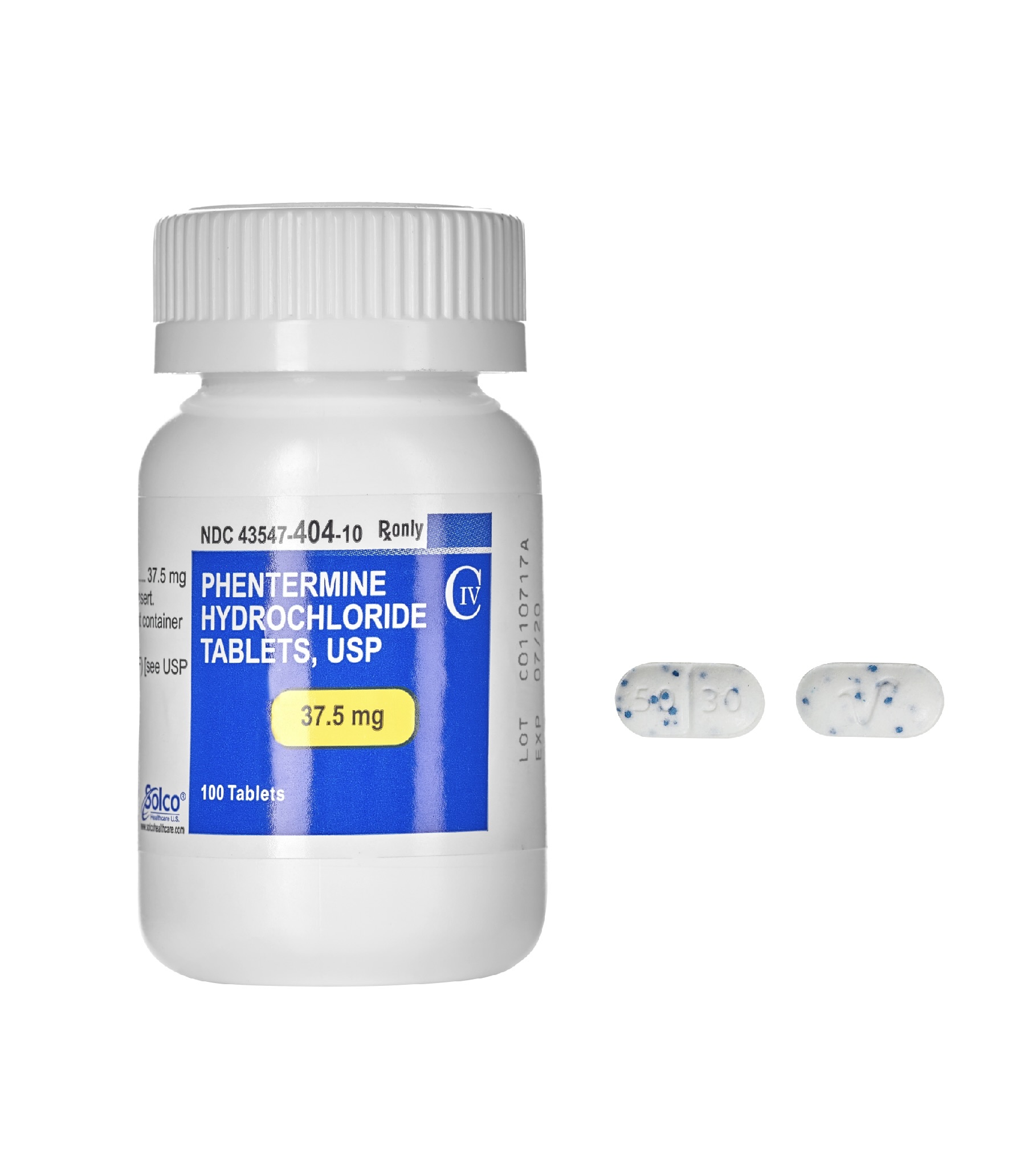Phentermine: Health Benefits & Risks
What are the health benefits of Phentermine?
Phentermine is a medication that is used as a short-term weight loss aid in combination with diet and exercise. It is an appetite suppressant that works by affecting the central nervous system to reduce appetite. Some of the health benefits of Phentermine include:
- Weight loss: Phentermine can help people lose weight by reducing appetite and calorie intake. It is typically used for short periods of time (a few weeks to a few months) as part of a comprehensive weight loss program.
- Improved health: Losing weight can have numerous health benefits, including improved blood sugar control, reduced risk of heart disease, lower blood pressure, and improved mobility and quality of life.
- Increased energy: Some people may experience increased energy levels while taking Phentermine, which can help with motivation to exercise and engage in physical activity.
- Appetite control: Phentermine can help people control their appetite and cravings, making it easier to stick to a healthy diet and reduce calorie intake.
- Metabolic effects: Phentermine may have metabolic effects that can help the body burn calories more efficiently, although the exact mechanisms are not fully understood.
It’s important to note that Phentermine is intended for short-term use only and is not a long-term solution for weight loss. It should be used in combination with a healthy diet and regular exercise for best results. Additionally, Phentermine is not suitable for everyone and can cause side effects, so it should only be used under the supervision of a healthcare provider.
What are the health risks of Phentermine?
Phentermine is a medication that is used as a short-term weight loss aid, but it carries some health risks and potential side effects. It’s important to be aware of these risks and discuss them with your healthcare provider before starting treatment. Some of the health risks associated with Phentermine include:
- Cardiovascular effects: Phentermine can increase heart rate and blood pressure, which can be problematic for people with certain heart conditions or high blood pressure. It may increase the risk of heart palpitations, arrhythmias, and heart attack, especially in those with preexisting heart problems.
- Central nervous system effects: Phentermine is a stimulant that can affect the central nervous system, leading to side effects such as restlessness, insomnia, dizziness, and headache. It can also cause mood changes, irritability, and anxiety in some people.
- Gastrointestinal effects: Phentermine can cause gastrointestinal side effects, such as dry mouth, constipation, diarrhea, and stomach cramps.
- Dependency and withdrawal: Phentermine has the potential for dependence and withdrawal symptoms when stopped abruptly after long-term use. It is classified as a controlled substance due to its potential for abuse.
- Tolerance: Some people may develop tolerance to the effects of Phentermine over time, meaning that they may need higher doses to achieve the same weight loss benefits.
- Interactions with other medications: Phentermine can interact with other medications, including antidepressants, antipsychotics, and MAO inhibitors, leading to serious side effects. It’s important to inform your healthcare provider about all medications you are taking before starting Phentermine.
- Allergic reactions: Some people may experience allergic reactions to Phentermine, including rash, itching, swelling, or difficulty breathing. These reactions can be serious and require immediate medical attention.
- Pulmonary hypertension: There have been rare reports of pulmonary hypertension (high blood pressure in the lungs) associated with the use of Phentermine, although the exact relationship is not well understood.
It’s important to use Phentermine only as directed by a healthcare provider and to be aware of the potential risks and side effects. Phentermine should not be used as a long-term weight loss solution and should be used in combination with a healthy diet and regular exercise for best results.
TL;DR: Phentermine Summary
Phentermine is a prescription medication that is used as an appetite suppressant to aid in weight loss. It is classified as a sympathomimetic amine, which works by stimulating the release of certain neurotransmitters such as norepinephrine, dopamine, and serotonin to decrease appetite and increase feelings of fullness.
Phentermine is typically prescribed as a short-term treatment for obesity in combination with diet, exercise, and behavioral modification. It is intended for individuals with a body mass index (BMI) of 30 or higher, or for those with a BMI of 27 or higher with weight-related medical conditions such as high blood pressure or diabetes.
Phentermine is usually taken orally in tablet or capsule form, typically once a day in the morning, with or without food. The dosage and duration of treatment with Phentermine will vary depending on the individual’s condition, medical history, and response to the medication.
Common side effects of Phentermine may include dry mouth, insomnia, increased heart rate, nervousness, and constipation. More severe side effects may include high blood pressure, heart palpitations, shortness of breath, and mood changes. It is important to seek medical attention if you experience any severe or persistent side effects while taking Phentermine.
Phentermine can interact with other medications and substances, so it is important to inform your healthcare provider about any existing medical conditions or medications you are taking before starting treatment with Phentermine.
It is essential to follow your healthcare provider’s instructions closely while taking Phentermine and to use it only as prescribed. Do not exceed the recommended dosage or take Phentermine for longer than advised to avoid the risk of dependence or tolerance. Talk to your healthcare provider if you have any concerns about taking Phentermine or if you experience negative side effects.
If you have any questions or concerns about taking Phentermine, be sure to discuss them with your healthcare provider. It is important to seek medical advice if you have any concerns about your weight loss or experience any negative side effects while taking Phentermine.




